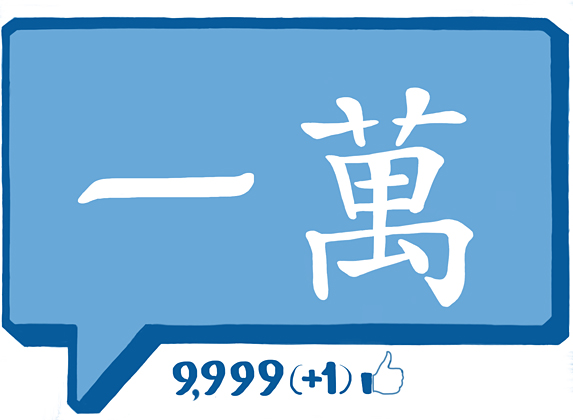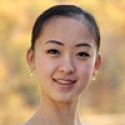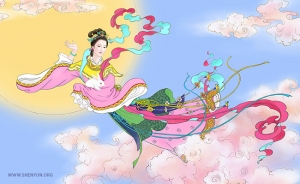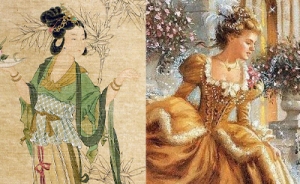Living by the Numbers

We just reached 10,000 “Likes” on our Shen Yun Facebook page but, following Chinese traditions, I’d rather think about it as 9,999 plus one. 9,999 resonates with my Asian soul in a way that four zeroes and a measly one will never be able to understand.
But aren’t numbers just numbers? Not in a land with 5,000 years of history. Here, every digit has its day, every number has its say, and integers form an integral part of life. So here’s the rundown of the Big Ten numbers.
The Good
9: In Chinese, nine is pronounced jiu, which also means “long lasting.” As the highest single digit, it represents the maximum level of mortal happiness, longevity, and good luck. A perfect ten is reserved for the gods. Case in point: in respect to the Heavens, the Forbidden City in Beijing has 9999.5 rooms, just short of a flawless 10,000.
8: Eight, or ba, is in the Cantonese dialect pronounced fa, which also means “to prosper” (as in the popular greeting “kung hei fa choi”—“Happy New Year, and be prosperous!”
The number 8’s Mobius strip-like shape speaks of unending cycles of wealth and good fortune. It’s the lucky number for businesses, license plates, phone numbers, apartment suites, and everything else—all by virtue of a serendipitous pun. Many airlines with flights to Asia even reserve triple-eight digits for their planes for extra luck.
Take it a step further, and two eights side-by-side (as in 88) visually resemble the writing of the expression “double happiness” (shuang xi), typically used at weddings to represent joy.
6: Six in Mandarin is pronounced liu, a homophone for “flowing” or “fluid.” Logic follows that where there are no obstacles, progress flows unimpeded. Thus, people believe that six is a good sign (or date, or time, or any mode of measurement) for getting what they want with a minimum of fuss. Less pain, more gain, anyone?
2: In Chinese culture, even numbers are considered more stable and balanced, and generally have a positive vibe. Two is the classic example, just like the saying: “good things come in pairs.” Gifts are typically presented in pairs at important occasions.
The power of two is also a potent force for doubling one’s luck, such as 88 and 99 (or even better, 9,999…). But use it wisely, lest you double your bad luck instead!
The Bad
4: Four used to have a good life in China. It was a typical even number, having stability and balance. Traditionally speaking, the four cardinal directions were guarded by four mythical beings. The Rabbit, also the fourth animal in the Chinese Zodiac, is considered one of its luckiest signs. Then one day, someone realized that the number four sounded like the word for death, or si, and everything went downhill from there.
In many parts of Asia, buildings, buses, and commercial products avoid four like the plague. Some hotels jump from the third to fifth floors, and skyscrapers skip floors 40-49 entirely.
7: Technically, seven is not all bad---Chinese Valentine’s Day falls on the seventh day of the seventh lunar month, and many still consider it a lucky number. As a homophone, seven is pronounced qi, which can mean either “wife” or “anger.” But there are more unpleasant connotations.
The seventh month of the Chinese calendar also goes by a second name: Ghost Month. Folklore has it that on the 15th, the gates of hell open to all ghosts, permitting them to eat and drink offerings from the living world. Most of these spirits are just typical run-of-the-mill ancestors back for a reunion, but people tend to stay indoors after dark, just in case.
By extension, seven squared makes 49, a number used in many religious rituals in Chinese funerals. The dead are said to linger in the living world for 49 days after death, and tradition decrees that a vigil be held over the body until then.
The Rest
0: There’s nothing here. Literally.
1: Individuality, unity, and concentration. If two is Yin, then one is Yang.
3: Three’s a crowd, but great for talking and communication. Lots of safe neutral space here.
5: A notorious flip-flopper. Five is pronounced as wu, which matches with the character for “nothingness” or “without” in Chinese. 521 in Chinese reads wu er yi, and with a little creative tinkering or slight slurring of words, it sounds more or less like wo ai ni, “I love you.”
Chinese culture traditionally has five elements (metal, wood, water, fire, earth), which maintain the balance of the universe and life as we know it. Paired with nine, it makes 95—a number suitable for emperors. Nine offers the majesty of being the highest single-digit odd number, and five, being neither lowest nor highest, provides a balancing force.
The End
(But wait, there’s an epilogue!)
Like most things in life, numbers can take on different meanings with different combinations. A number like 5354 (wu san wu si) sounds like “not alive, not dead” (or “on the verge of death”), and 7456 (qi si wu liu) sounds more or less like “makes me so angry!”
A low-scoring 1314 (yi san yi si) sounds like “one life, one death,” or sticking with something through thick and thin. The well-mannered and lucky two takes on a different meaning in the number 250 (er bai wu), which is northern Chinese slang for calling someone a dolt. Even the measure of coolness, 1337 (yi san san qi), looks less appealing when you consider that it could mean “getting angry all your life.”
When in doubt, stick with the numbers you know are good—and square them instead. So here’s to hoping we’ll meet again when we hit the 99,999 (+1) mark!

Jade Zhan
Contributing writer
5 februari, 2013






